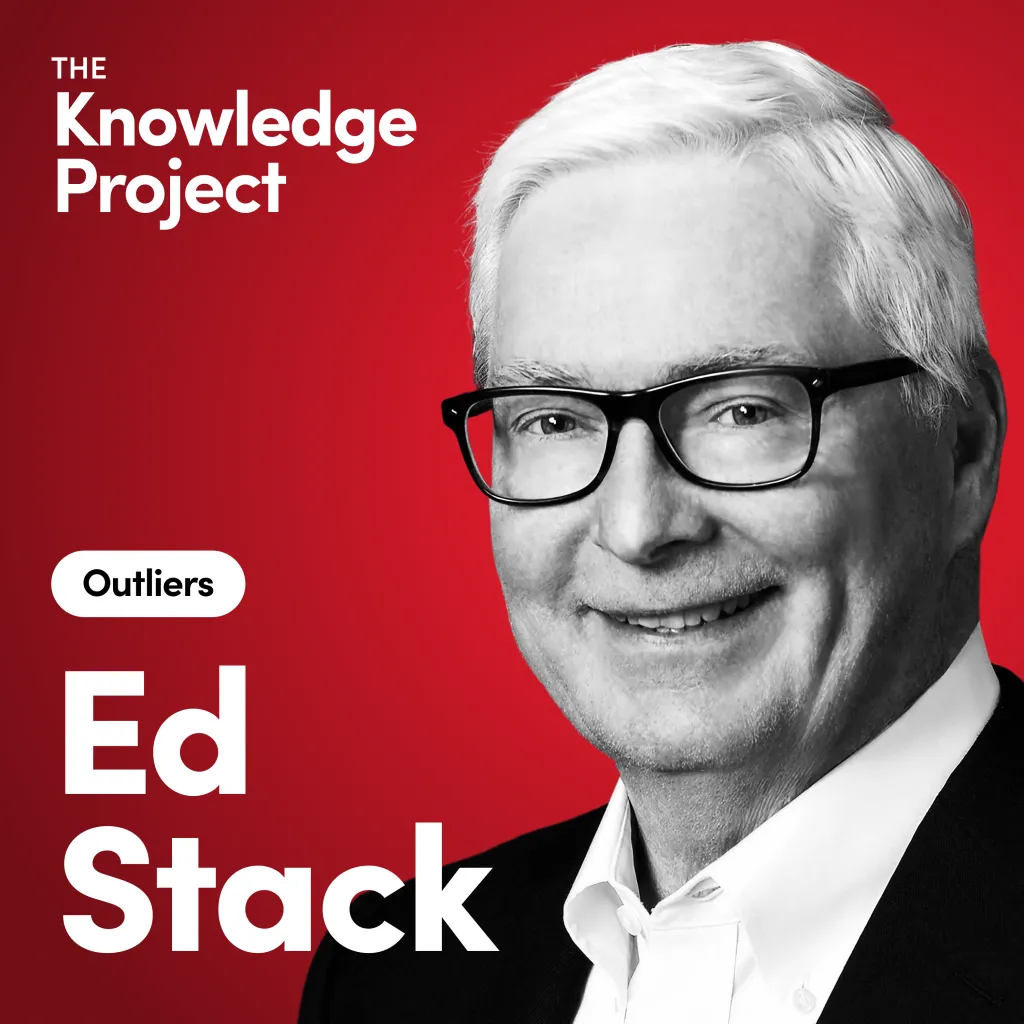[Outliers] Ed Stack: Lessons from Dick’s Sporting Goods
Blog: Farnam Street
Ed Stack built Dick’s Sporting Goods from a struggling family store into an empire of more than 800 stores and billions in sales. Along the way he nearly lost everything. Multiple times.
This episode is the story of what he did, how he did it, and the lessons you can learn.
Coming Soon: Apple Podcasts | Spotify | Transcript
Lessons From Ed Stack:
1. The Gift of Belief: Dick Stack’s grandmother pulled $300 from her cookie jar after his boss crossed out his carefully crafted list. She didn’t give him business advice or connections. She gave him belief. Dick’s Sporting Goods exists because someone believed in an eighteen-year-old kid who barely graduated high school. Believing in someone before they believe in themselves can change everything.
2. Your Name Is Your Biggest Asset: When Dick’s second store failed in 1956, he could have declared bankruptcy like everyone expected. Instead, he sold his house, his car, everything he owned to pay back creditors in full. Six weeks later, when he asked those same suppliers for another chance, they remembered. Trust isn’t built in the good times, it’s built in the hard times.
3. A Taste for Saltwater: Ed despised working at his father’s store every summer and weekend from age thirteen. While friends played baseball, he unloaded trucks in suffocating heat. However, miserable those years were he learned. Sometimes your worst experiences are the best education.
4. Ignorance is a Superpower: Ed and Tim signed papers to buy land in Syracuse with no plan, no budget, no idea what a “vanilla box” was. They nearly opened a store with empty walls. They made every possible mistake. But here’s the thing: if they’d known everything that could go wrong, they might never have left Binghamton. Those mistakes taught them more about expansion than any course could. Sometimes knowing too much kills action.
5. The Quiet One Decides: At the make-or-break GE Capital meeting, suits grilled Ed for ninety minutes. But in the back sat a man who never spoke, just watched. After everyone left, he approached Ed: “Tell me what you need.” That was the decision maker. Every important meeting works this way: The loud ones interrogate. The quiet one decides. Find the person saying nothing. That’s who you convince. Everyone else is just noise.
6. Own It All: When GE Capital asked about Dick’s near-bankruptcy, Ed didn’t deflect or minimize. “We made a series of mistakes. Here’s what they were. Here’s why we made them. Here’s exactly how we’ll ensure they never happen again.” That brutal honesty saved the company. Most people explain away failure. The best dissect it like surgeons. The precision of your diagnosis proves the depth of your understanding.
7. Kindness of Strangers: After nearly losing everything in 1996, Ed learned what Buffett knew: “Never count on the kindness of strangers to meet tomorrow’s obligations.” Dick’s has very little debt, despite Wall Street calling their balance sheet “suboptimal.” Ed doesn’t care. The banks can’t take your business if you don’t owe them money. Never put yourself in position to need the kindness of strangers.
8. Bet on Hunger: When Puma and Adidas wouldn’t return Ed’s calls, he gave shelf space to a nobody named Nike. When established brands ignored them, he backed a football player making shirts in his grandmother’s basement: Under Armour. The rejection by established players forced Dick’s to bet on the hungry unknowns. Those partnerships made billions. Sometimes the best deals come from those desperate to prove themselves, not those who’ve already made it.
9. Follow the Territory not the Map: The VCs pulled out spreadsheets showing ed what works on paper. But Ed remembered that kid in Buffalo who gasped at thirty feet of baseball gloves. That wall of gloves didn’t turn inventory fast but it got people in the store. The VCs measured the wrong thing. When spreadsheets and stories disagree, the stories are usually right. The data isn’t wrong. You’re just measuing the wrong thing. Those specialty retailers run by spreadsheets? All dead. Dick’s survived because Ed understood something fundamental: The map is not the territory. The spreadsheet is not the store.
10. High Agency Means No Excuses: When Ed’s CFO said they’d be bankrupt next month, someone suggested Chapter 11. Ed felt physically sick—his father had sold everything to avoid bankruptcy in 1956. “That’s not an option,” Ed said. So he found another way, even if it meant dealing with GE Capital’s brutal terms. High-agency people don’t accept the obvious solution. They find the option that shouldn’t exist. While others explain why something can’t be done, they’re already doing it.
11. The Real Transaction: Dick’s Sporting Goods became an empire because Dick and Ed Stack knew they weren’t just selling equipment. They were selling possibility. When you understand what people really buy, you understand everything.
Source:
Stack, E., & Deitsch, R. (2019). It’s how we play the game: Build a business. Take a stand. Make a difference. Scribner.
The post [Outliers] Ed Stack: Lessons from Dick’s Sporting Goods appeared first on Farnam Street.
